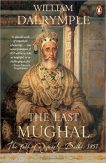You must be logged in to post a review.
Interpreter of Maladies- Skryf Library
by Jhumpa Lahiri
Description:
Pulitzer-winning, scintillating studies in yearning and exile from a Bengali Bostonian woman of immense promise. A couple exchange unprecedented confessions during nightly blackouts in their Boston apartment as they struggle to cope with a heartbreaking loss; a student arrives in new lodgings in a mystifying new land and, while he awaits the arrival of his arranged-marriage wife from Bengal, he finds his first bearings with the aid of the curious evening rituals that his centenarian landlady orchestrates; a schoolboy looks on while his childminder finds that the smallest dislocation can unbalance her new American life all too easily and send her spiralling into nostalgia for her homeland. Jhumpa Lahiri’s prose is beautifully measured, subtle and sober, and she is a writer who leaves a lot unsaid, but this work is rich in observational detail, evocative of the yearnings of the exile (mostly Indians in Boston here), and full of emotional pull and reverberation.
About The Author
Nilanjana Sudeshna “Jhumpa” Lahiri (born on July 11, 1967) is an Indian American author. Lahiri’s debut short story collection Interpreter of Maladies (1999) won the 2000 Pulitzer Prize for Fiction, and her first novel, The Namesake (2003), was adapted into the popular film of the same name. She was born Nilanjana Sudeshna but goes by her nickname (or in Bengali, her “Daak naam”) Jhumpa. Lahiri is a member of the President’s Committee on the Arts and Humanities, appointed by U.S. President Barack Obama. Her book The Lowland, published in 2013, was a nominee for the Man Booker Prize and the National Book Award for Fiction. Lahiri is currently a professor of creative writing at Princeton University.Lahiri’s early short stories faced rejection from publishers “for years.” Her debut short story collection, Interpreter of Maladies, was finally released in 1999.
The stories address sensitive dilemmas in the lives of Indians or Indian immigrants, with themes such as marital difficulties, the bereavement over a stillborn child, and the disconnection between first and second generation United States immigrants. Lahiri later wrote, “When I first started writing I was not conscious that my subject was the Indian-American experience. What drew me to my craft was the desire to force the two worlds I occupied to mingle on the page as I was not brave enough, or mature enough, to allow in life.” The collection was praised by American critics, but received mixed reviews in India, where reviewers were alternately enthusiastic and upset Lahiri had “not paint[ed] Indians in a more positive light.” “Many people criticise her by saying that she, in her stories, has portrayed India in [an] unclear, untrue and faulty manner.
But, it is really painful for any writer living far away in a new state, leaving his/her own homeland behind; the motherland, the environment, people, culture etc. constantly echo in the writer’s (and of course anybody else’s) mind. So, the manner of trying to imagine and describe about the motherland and its people deserves esteem. I think that we should coin a new term, i.e. ‘distant-author’ and add it to Lahiri’s name since she, being a part of another country, has taken the help of ‘imagination’ and depicted her India the way she has wanted to; the writer must have every possible right to paint the world the way he/she thinks appropriate.” Interpreter of Maladies sold 600,000 copies and received the 2000 Pulitzer Prize for Fiction (only the seventh time a story collection had won the award).
In 2003, Lahiri published The Namesake, her first novel. The story spans over 30 years in the life of the Ganguli family. The Calcutta-born parents immigrated as young adults to the United States, where their children, Gogol and Sonia, grow up experiencing the constant generational and cultural gap with their parents. A film adaptation of The Namesake was released in March 2007, directed by Mira Nair and starring Kal Penn as Gogol and Bollywood stars Tabu and Irrfan Khan as his parents. Lahiri herself made a cameo as “Aunt Jhumpa.”
Lahiri’s second collection of short stories, Unaccustomed Earth, was released on April 1, 2008. Upon its publication, Unaccustomed Earth achieved the rare distinction of debuting at number 1 on The New York Times best seller list. New York Times Book Review editor, Dwight Garner, stated, “It’s hard to remember the last genuinely serious, well-written work of fictionparticularly a book of storiesthat leapt straight to No. 1; it’s a powerful demonstration of Lahiri’s newfound commercial clout.”
Lahiri has also had a distinguished relationship with The New Yorker magazine in which she has published a number of her short stories, mostly fiction, and a few non-fiction including The Long Way Home; Cooking Lessons, a story about the importance of food in Lahiri’s relationship with her mother.
Since 2005, Lahiri has been a vice president of the PEN American Center, an organization designed to promote friendship and intellectual cooperation among writers.
In February 2010, she was appointed a member of the Committee on the Arts and Humanities, along with five others.
In September 2013, her novel The Lowland was placed on the shortlist for the Man Booker Prize, which ultimately went to The Luminaries by Eleanor Catton. The following month it was also long-listed for the National Book Award for Fiction, and revealed to be a finalist on October 16, 2013. However, on November 20, 2013, it lost out for that award to James McBride and his novel The Good Lord Bird.
In December 2015 Lahiri published a non-fiction essay called “Teach Yourself Italian” in The New Yorker about her experience learning Italian. In the essay she declared that she is now only writing in Italian, and the essay itself was translated from Italian to English.
Jhumpa Lahiri was judged as the winner of the DSC Prize for South Asian Literature 2015 for her book The Lowland (Vintage Books/ Random House, India) at the Zee Jaipur Literature Festival for which she entered Limca Book of Records.








Reviews
There are no reviews yet.